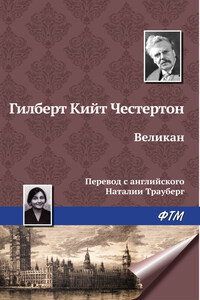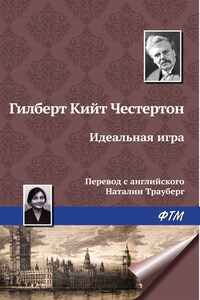Chapter I – The Parsonage
All true histories contain instruction; though, in some, the treasure may be hard to find, and when found, so trivial in quantity, that the dry, shrivelled kernel scarcely compensates for the trouble of cracking the nut. Whether this be the case with my history or not, I am hardly competent to judge. I sometimes think it might prove useful to some, and entertaining to others; but the world may judge for itself. Shielded by my own obscurity, and by the lapse of years, and a few fictitious names, I do not fear to venture; and will candidly lay before the public what I would not disclose to the most intimate friend.
My father was a clergyman of the north of England, who was deservedly respected by all who knew him; and, in his younger days, lived pretty comfortably on the joint income of a small incumbency and a snug little property of his own. My mother, who married him against the wishes of her friends, was a squire's daughter, and a woman of spirit. In vain it was represented to her, that if she became the poor parson's wife, she must relinquish her carriage and her lady's-maid, and all the luxuries and elegancies of affluence; which to her were little less than the necessaries of life. A carriage and a lady's-maid were great conveniences; but, thank heaven, she had feet to carry her, and hands to minister to her own necessities. An elegant house and spacious grounds were not to be despised; but she would rather live in a cottage with Richard Grey than in a palace with any other man in the world.
Finding arguments of no avail, her father, at length, told the lovers they might marry if they pleased; but, in so doing, his daughter would forfeit every fraction of her fortune. He expected this would cool the ardour of both; but he was mistaken. My father knew too well my mother's superior worth not to be sensible that she was a valuable fortune in herself: and if she would but consent to embellish his humble hearth he should be happy to take her on any terms; while she, on her part, would rather labour with her own hands than be divided from the man she loved, whose happiness it would be her joy to make, and who was already one with her in heart and soul. So her fortune went to swell the purse of a wiser sister, who had married a rich nabob; and she, to the wonder and compassionate regret of all who knew her, went to bury herself in the homely village parsonage among the hills of —. And yet, in spite of all this, and in spite of my mother's high spirit and my father's whims, I believe you might search all England through, and fail to find a happier couple.
Of six children, my sister Mary and myself were the only two that survived the perils of infancy and early childhood. I, being the younger by five or six years, was always regarded as THE child, and the pet of the family: father, mother, and sister, all combined to spoil me – not by foolish indulgence, to render me fractious and ungovernable, but by ceaseless kindness, to make me too helpless and dependent – too unfit for buffeting with the cares and turmoils of life.
Mary and I were brought up in the strictest seclusion. My mother, being at once highly accomplished, well informed, and fond of employment, took the whole charge of our education on herself, with the exception of Latin – which my father undertook to teach us – so that we never even went to school; and, as there was no society in the neighbourhood, our only intercourse with the world consisted in a stately tea-party, now and then, with the principal farmers and tradespeople of the vicinity (just to avoid being stigmatized as too proud to consort with our neighbours), and an annual visit to our paternal grandfather's; where himself, our kind grandmamma, a maiden aunt, and two or three elderly ladies and gentlemen, were the only persons we ever saw. Sometimes our mother would amuse us with stories and anecdotes of her younger days, which, while they entertained us amazingly, frequently awoke – in ME, at least – a secret wish to see a little more of the world.
I thought she must have been very happy: but she never seemed to regret past times. My father, however, whose temper was neither tranquil nor cheerful by nature, often unduly vexed himself with thinking of the sacrifices his dear wife had made for him; and troubled his head with revolving endless schemes for the augmentation of his little fortune, for her sake and ours. In vain my mother assured him she was quite satisfied; and if he would but lay by a little for the children, we should all have plenty, both for time present and to come: but saving was not my father's forte. He would not run in debt (at least, my mother took good care he should not), but while he had money he must spend it: he liked to see his house comfortable, and his wife and daughters well clothed, and well attended; and besides, he was charitably disposed, and liked to give to the poor, according to his means: or, as some might think, beyond them.
At length, however, a kind friend suggested to him a means of doubling his private property at one stroke; and further increasing it, hereafter, to an untold amount. This friend was a merchant, a man of enterprising spirit and undoubted talent, who was somewhat straitened in his mercantile pursuits for want of capital; but generously proposed to give my father a fair share of his profits, if he would only entrust him with what he could spare; and he thought he might safely promise that whatever sum the latter chose to put into his hands, it should bring him in cent per cent. The small patrimony was speedily sold, and the whole of its price was deposited in the hands of the friendly merchant; who as promptly proceeded to ship his cargo, and prepare for his voyage.
My father was delighted, so were we all, with our brightening prospects. For the present, it is true, we were reduced to the narrow income of the curacy; but my father seemed to think there was no necessity for scrupulously restricting our expenditure to that; so, with a standing bill at Mr. Jackson's, another at Smith's, and a third at Hobson's, we got along even more comfortably than before: though my mother affirmed we had better keep within bounds, for our prospects of wealth were but precarious, after all; and if my father would only trust everything to her management, he should never feel himself stinted: but he, for once, was incorrigible.
What happy hours Mary and I have passed while sitting at our work by the fire, or wandering on the heath-clad hills, or idling under the weeping birch (the only considerable tree in the garden), talking of future happiness to ourselves and our parents, of what we would do, and see, and possess; with no firmer foundation for our goodly superstructure than the riches that were expected to flow in upon us from the success of the worthy merchant's speculations. Our father was nearly as bad as ourselves; only that he affected not to be so much in earnest: expressing his bright hopes and sanguine expectations in jests and playful sallies, that always struck me as being exceedingly witty and pleasant. Our mother laughed with delight to see him so hopeful and happy: but still she feared he was setting his heart too much upon the matter; and once I heard her whisper as she left the room, 'God grant he be not disappointed! I know not how he would bear it.'









